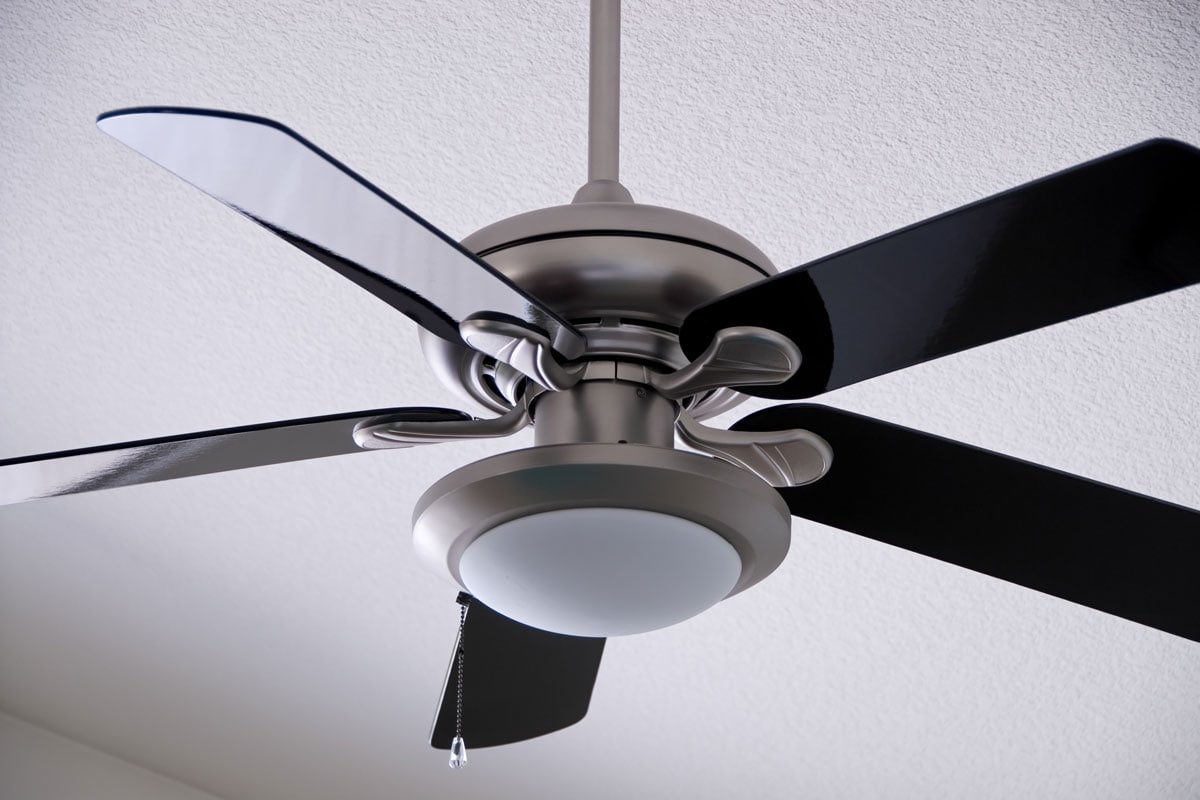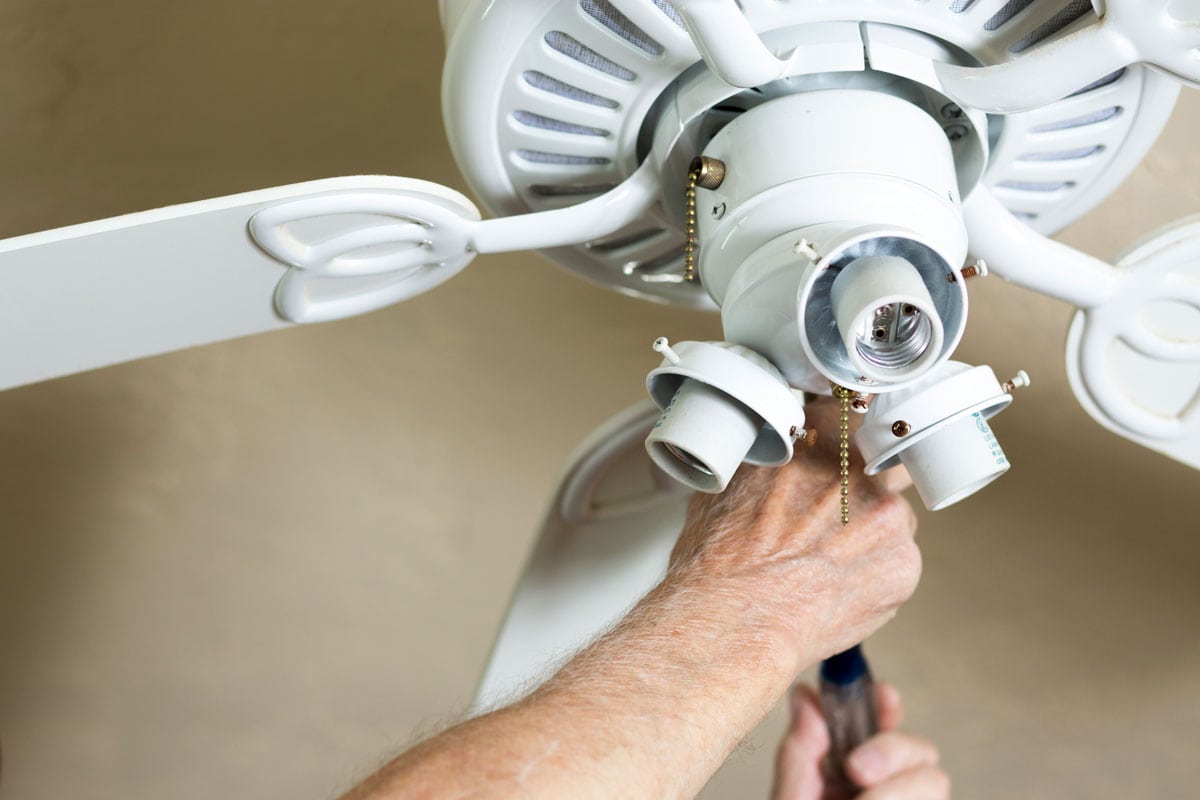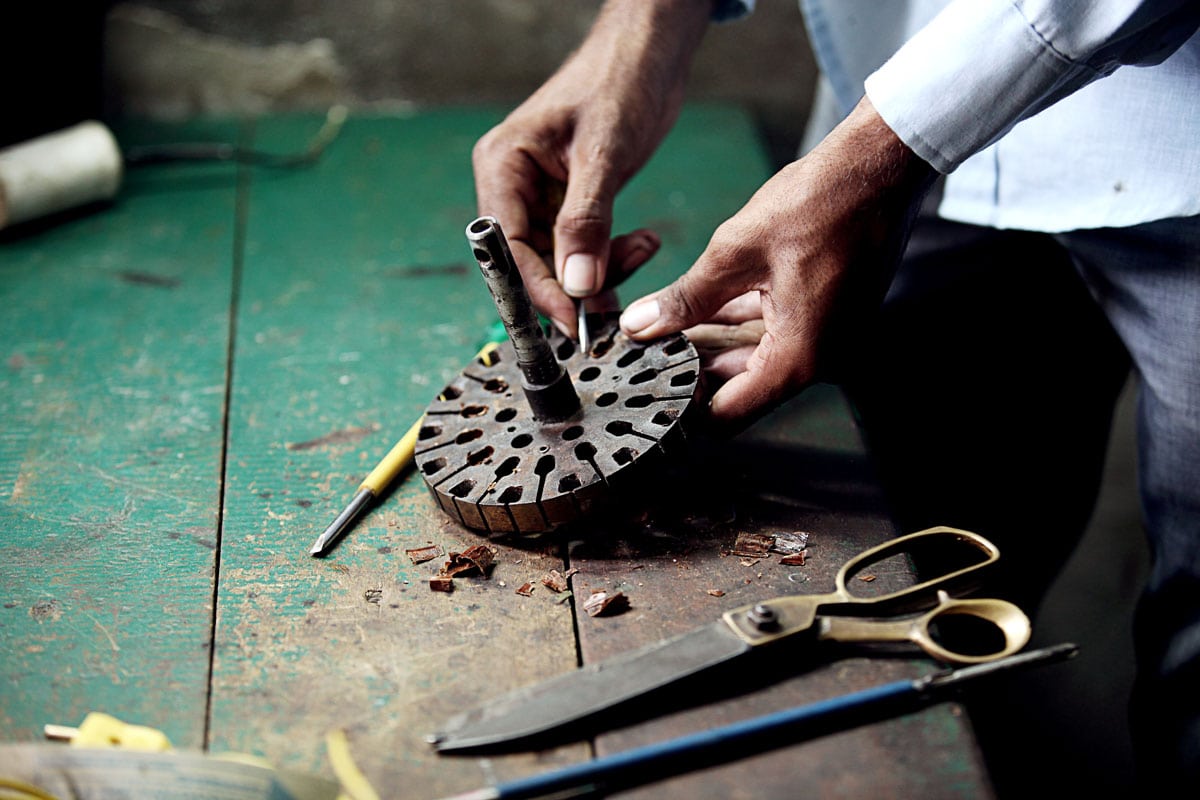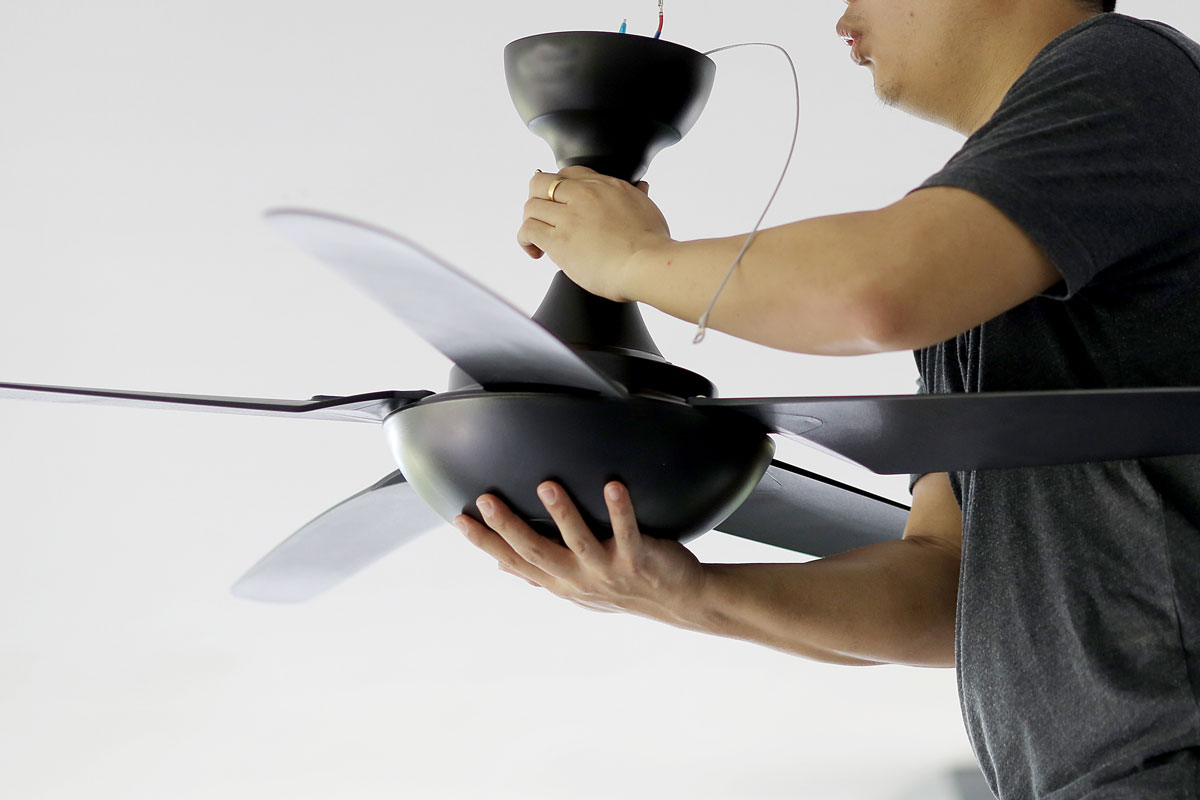A ceiling fan is a great way to keep your home cool during the summer months. But if it starts making a grinding noise, you will want to have it repaired as soon as possible. To help you solve this issue, we have compiled the necessary details on why grinding noise is usually a sign of something wrong with any parts of the fan.
Once your ceiling fan produces weird sounds like a grinding noise, you might as well check it right away. It could be due to some of its parts or its whole structure. Here are the possible areas that could cause the noise on your ceiling fan:
- Fan Motor
- Fan Blades
- Dimmers
- Capacitors
- Loose Screws
- Mount
- Junction Box
Keep reading to see what could be wrong with your ceiling fan. Find out the possible solutions to stop the grinding noise on your ceiling fan. Most importantly, learn the proper ways to maintain it.

Why does my ceiling fan sound like it's grinding?
1. Fan Motor
If you hear a weird noise coming from your ceiling fan, the fan motor is likely the culprit. The fan motor is responsible for spinning the ceiling fan blades, so if it starts to make funny noises, it's usually because it's not spinning correctly.
2. Fan Blades

As the blades rotate, they create a small amount of turbulence that can cause vibrations. These vibrations can then get transferred to the ceiling, which amplifies the sound.
In most cases, the noise from a ceiling fan is not loud enough to be bothersome. But then, if the blades are unbalanced or worn, they can create a humming or clicking sound that can be quite annoying.
3. Dimmers
If you have a ceiling fan that is making noise, it could be due to the dimmer switch that is controlling the fan. Dimmer switches can cause a ceiling fan to make noise for two reasons.
First, the dimmer switch can create a humming sound as it regulates the flow of electricity to the fan. Second, the dimmer switch can cause the ceiling fan's blades to vibrate, which will create noise as well.
4. Capacitors
A ceiling fan usually consists of three metal blades connected to a central hub. The blades are attached to the hub with brackets, allowing them to rotate freely. The hub connects to a motor, which is responsible for powering the blades.
Capacitors are an important part of the motor, and they help regulate the flow of electricity. Over time, capacitors can become damaged or worn out, which can cause the ceiling fan to make noise.
In some cases, the noise may be due to a loose connection between the capacitor and the motor. If the noise is severe, it may be necessary to replace the capacitor. However, it is also possible to repair a damaged capacitor by soldering the connection back together.
5. Loose Screws
The cause of noise on the ceiling fan is usually due to loose screws. Over time, the screws that hold the blades in place can become loose, causing the blades to wobble and produce a loud humming noise. Additionally, the screws that secure the motor housing to the ceiling may also become loose, resulting in a rattling noise.
6. Mount
One of the most common causes of noise is improper mounting. If the fan is not securely attached to the ceiling, it can vibrate and produce a loud humming noise. That's why mounting could be one of the reasons why there is a grinding noise as it might fully fit with the hanging mount or ceiling joist.
7. Junction Box
The junction box is where the wiring for the fan connects to the house's electrical system. As time goes by, vibrations from the fan can cause the wires to loosen, producing a rattling noise.
Should I be worried if my ceiling fan is making noise?
A ceiling fan making a grinding noise is never a good sign. Not only is it annoying, but it can also be a sign that something is not working properly with the fan.
But then, even though it is not uncommon for ceiling fans to make noise, and in most cases, there is no cause for concern. Most importantly, the good news is that problems with ceiling fans making noise are relatively easy to fix.
How do I stop my ceiling fan from making a scraping noise?

Clean the fan blades
Make sure that the blades are clean. Dust and dirt can build up on the blades, causing them to wobble and creating a louder sound.
Check the junction box
Simply tighten the screws on the junction box. If the screws are not snug, use a screwdriver to tighten them until they are tight. If the noise persists, there may be another problem with the fan.
Tighten the screws
Check that all of the screws and bolts. You should properly tighten them to prevent any loose materials. If even one blade is loose, it can cause the entire fan to vibrate and produce a loud humming noise.
Align the parts properly
Check the alignment of the blades and make any necessary adjustments. If the blades are still rubbing, try slightly bending them so that they no longer make contact with the housing. They should all be level with each other and pointing in the same direction. If they are not, you will need to adjust them until they are.
Tighten mounting brackets
One way to stop noise from a ceiling fan is to use mounting brackets. By doing this, you will reduce the amount of movement that the fan blades make. It will help reduce the amount of noise created by the fan. In addition, it is vital to make sure that the fan blades are properly balanced.
Lubricate fan and its essential parts
Lubricating your ceiling fan is important for two reasons. First, it helps to keep the fan running smoothly. The blades need to move freely to create the airflow that keeps a room cool. When the bearings fail, the blades can get stuck or make strange noises. By lubricating the fan regularly, you can extend its life and avoid replacing it prematurely.
Second, ceiling fans can create a lot of dust, and that dust can settle on your furniture and floors. Lubricating the fan will help reduce the amount of dust created, making it easier to keep your home clean.
Change parts, if needed
One way to stop your ceiling fan from making noise is to change the parts that might be causing the issue. If the blades are not in their best condition, you might need to replace them. The same goes for the motor. If it is starting to fail, it is better to change them to a new motor.
Get a complete set of hand tools to keep your ceiling fan intact. - View it on Amazon.
How often should I oil my ceiling fan?

Most ceiling fans come with a manual that will tell you how often to oil the fan. However, as a general rule, you should oil your ceiling fan at least once a year. If you live in an area with a lot of dust, you may need to oil your fan more frequently.
Which oil is best for the fan motor?
Most ceiling fans come with a manufacturer's recommendation for the type of lubricant to use. In general, but, it is best to use a light oil such as 3-in-1 multipurpose oil.
Use 3-in-1 multipurpose oil for your ceiling fan. - See it on Amazon.
How to lubricate electric fan motors?

Here are the basic steps to lubricate your ceiling fans:
- First, make sure that you turn off the fan and the blades are not moving.
- Then, apply a small amount of oil to a clean cloth and wipe down each blade, careful not to get any oil on the floor or furniture.
- Try manual spinning the blades to let the oil seize in the area. If not possible, let it run automatically when you turn it on.
- Once all of the blades have been lubricated, turn on the fan and check for any signs of excess oil or frictional noise.
Why it's important to keep your ceiling fan in good condition?
A ceiling fan is a great way to keep your home cool in the summer and circulate warm air in the winter. Yet still, a ceiling fan that is not in good condition can actually do more harm than good.
A broken or damaged ceiling fan can cause injuries, and a poorly maintained fan can actually reduce your indoor air quality. That's why it's essential to keep your ceiling fan in good working condition.
Final Words

If your ceiling fan is making a grinding noise, it could be that the blades need to be tightened or balanced. You can try doing this yourself, but if you’re uncomfortable with the task or the problem persists, it’s best to call in a professional.
For more information about ceiling fans and their maintenance, check out the following articles below:
Ceiling Fan Not Working On All Speeds – What To Do?
How Much Does It Cost To Run A Ceiling Fan?
Can You Mount A Ceiling Fan Directly To A Joist? [And How To]


